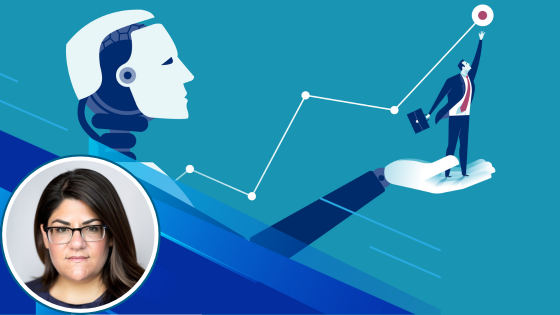The world of B2B demand generation marketing is at a pivotal turning point. Artificial intelligence (AI) has evolved from a tool for automation and optimization to a driver of strategic decision-making. As demand gen marketers adopt AI to predict trends, adjust campaigns in real-time and personalize engagement at scale, a critical question emerges: What is the role of human expertise in an AI-driven future?
The answer lies in achieving balance. While AI amplifies capabilities, it cannot replace the creativity, empathy and strategic thinking that make B2B marketing truly impactful.
AI’s Potential (& Limits) In B2B Demand Generation
AI has fundamentally transformed how B2B marketers approach demand generation. From predictive analytics that identify high-intent prospects to automated workflows that nurture leads at scale, AI helps uncover opportunities hidden within vast datasets. It enables marketers to target accounts with greater precision, shorten sales cycles and drive measurable business outcomes.
But here’s the reality: AI is a powerful enabler, not a standalone solution. Algorithms optimize for efficiency but lack the contextual understanding required to craft meaningful, audience-first strategies. In the complex, relationship-driven world of B2B, human expertise is essential to ensure that AI-driven initiatives align with the organization’s strategic objectives and resonate with target accounts on a deeper level. It’s this human touch that transforms campaigns from data-driven to demand-generating.
Building Algorithm-Friendly Demand Gen Systems
To thrive in an AI-first B2B marketing landscape, demand gen marketers must rethink how they integrate with and influence AI algorithms. Being “algorithm-friendly” doesn’t mean blindly following AI’s recommendations — it means creating systems that leverage AI insights while maintaining human oversight and direction.
This starts with designing processes that actively engage with algorithms daily. For example:
- Running A/B tests to refine messaging for target personas;
- Adjusting campaigns based on engagement data from high-value accounts; and
- Crafting content that speaks to the unique pain points and priorities of decision-makers in specific industries.
In B2B, where buying journeys are long and complex, marketers and sales must see AI as a collaborator that enhances their ability to drive pipeline and revenue. The goal isn’t “set it and forget it;” it’s to build campaigns where AI amplifies human engagement, ensuring every touchpoint is both data-informed and account-focused.
Redefining Success In B2B Marketing
The rise of AI calls for a fundamental shift in how demand generation marketers define success. Rather than prioritizing metrics like MQLs or click-through rates, success should center on outcomes that bridge the gap between marketing and sales and drive long-term business growth. AI plays a transformative role in these areas, empowering demand generation teams to:
Enable Sales Teams With Predictive Insights
AI-driven lead scoring and account prioritization help sales teams focus on the opportunities most likely to convert.
Facilitate ABM Personalization at Scale
AI tailors outreach and messaging for individual accounts, creating stronger, more relevant connections between sales reps and prospects.
Provide Offline Conversion Tracking
By connecting marketing efforts to revenue outcomes, AI ensures sales teams receive data-driven feedback on which campaigns are truly driving results.
However, the true power of AI emerges when human marketers guide these efforts, ensuring optimizations align with strategic business objectives rather than just short-term metrics. Marketing teams must take ownership of delivering actionable data, enabling sales teams to build relationships and close deals with confidence.
The most effective demand generation teams will seamlessly combine AI’s precision with human expertise, fostering stronger alignment between marketing and sales to deliver results that matter — both for the business and its customers.
The Future Of B2B Marketing: Harmonizing AI & Human Expertise
The intersection of AI and human expertise will shape the future of B2B demand generation marketing. While AI is a powerful ally in scaling efforts and driving precision, it cannot replicate the qualities that make marketing meaningful: creativity, empathy and strategic thinking.
By embracing AI as a partner — and not a magic bullet — B2B marketers can unlock its full potential while staying true to the principles that connect brands with buyers. The future isn’t about choosing between humans and machines or sales and marketing; it’s about harmonizing their strengths to create campaigns that drive meaningful, sustainable outcomes.
Rachel Schulties is the SVP, Client Services for Level Agency, a digital marketing agency. As a results-oriented executive, Schulties brings a wealth of experience to the Level team. With more than 20 years of experience managing teams and overseeing revenues of $150M–$700M, she excels in strategic planning, performance management and revenue growth. Passionate about fostering client relationships, she thrives in high-pressure environments and focuses on optimizing processes to position firms for continuous success.







